When heavy rain saturates your outdoor space, a flooded yard can quickly turn from an eyesore into a hotspot for pests. Not only does standing water ruin lawns and garden beds, but it also becomes an ideal nursery for mosquito larvae in yard puddles. At the same time, moisture-loving insects like drain flies take advantage of soggy soil and decaying plant matter. Proactive control measures are essential to protect your family’s health and restore your yard’s beauty.
Pay attention to visual cues after a storm: spotting tiny, wriggling mosquito larvae in puddles is a clear sign of active breeding. Known colloquially as “wigglers,” these larvae are often seen moving just below the surface. Additionally, the presence of small, moth-like drain flies hovering near saturated areas—especially around foundation edges and drainage pits—is a red flag that drain flies after flooding are establishing a presence. Recognizing these early warning signs is key to preventing larger infestations.
After heavy rain, it’s crucial to remove or manage lingering water. Empty containers such as buckets, toys, and wheelbarrows. Fill in low-lying depressions or holes that collect water. Even everyday items like overturned plant pot saucers can hold enough water to breed mosquitoes
2. Apply Larvicide Tablets
In areas where standing water cannot be drained—like birdbaths, rain barrels, or garden water features—introduce larvicide tablets. These are safe for pets and wildlife but effectively kill mosquito larvae before they mature. Regular reapplication helps maintain control throughout the wet season.
3. Clean Gutters and Downspouts
Clogged gutters cause water to overflow and seep into yard areas, creating puddles. Clearing debris ensures proper water flow away from the home. Take a moment after storms to inspect and remove leaves and sediment to prevent future pooling.
4. Enhance Yard Drainage
Improving drainage may require simple yard grading or creating channels lined with gravel to direct water away from the house. Proper drainage not only prevents mosquito larvae in yard but also helps maintain healthy landscaping and prevents water damage.
Drain Fly Control Tips
Drain flies thrive in wet environments rich in organic matter. After flooding, inspect sump pits, Dutch drains, and overwatered planting areas. Scrub these locations to disrupt breeding sites and flush them with clean water. Removing thick layers of wet mulch or sodden debris will reduce organic buildup, preventing fly larvae from developing. Adding landscaping fabric beneath mulch can further help by keeping soil drier and less hospitable to drain flies.
Professional Options & Yard Guard Program
For homeowners noticing persistent mosquitoes or drain flies despite DIY efforts, it may be time to seek professional help. The Yard Guard program includes a thorough yard inspection to identify hidden breeding zones around your property. Technicians can provide targeted status updates and apply treatments such as barrier sprays and larvicide to heavily affected areas. Ongoing monitoring and maintenance visits throughout the rainy season offer continued protection and peace of mind—especially in regions like New Jersey where storms occur frequently.
Conclusion
Left untreated, a flooded yard can quickly become a breeding ground for mosquito larvae in yard and drain flies after flooding, turning your outdoor space into a haven for pests. By removing standing water, using larvicide tablets, cleaning drains, and optimizing drainage, homeowners can significantly reduce pest pressure. When simple remedies are not enough, professional services like New Jersey’s Yard Guard program provide comprehensive treatments and expert advice, ensuring your yard stays enjoyable, pest-free, and ready for outdoor living.
Want help tackling post-flood pests? Contact Horizon Pest Control today to arrange a Yard Guard inspection and personalized treatment plan to protect your outdoor space this season.


